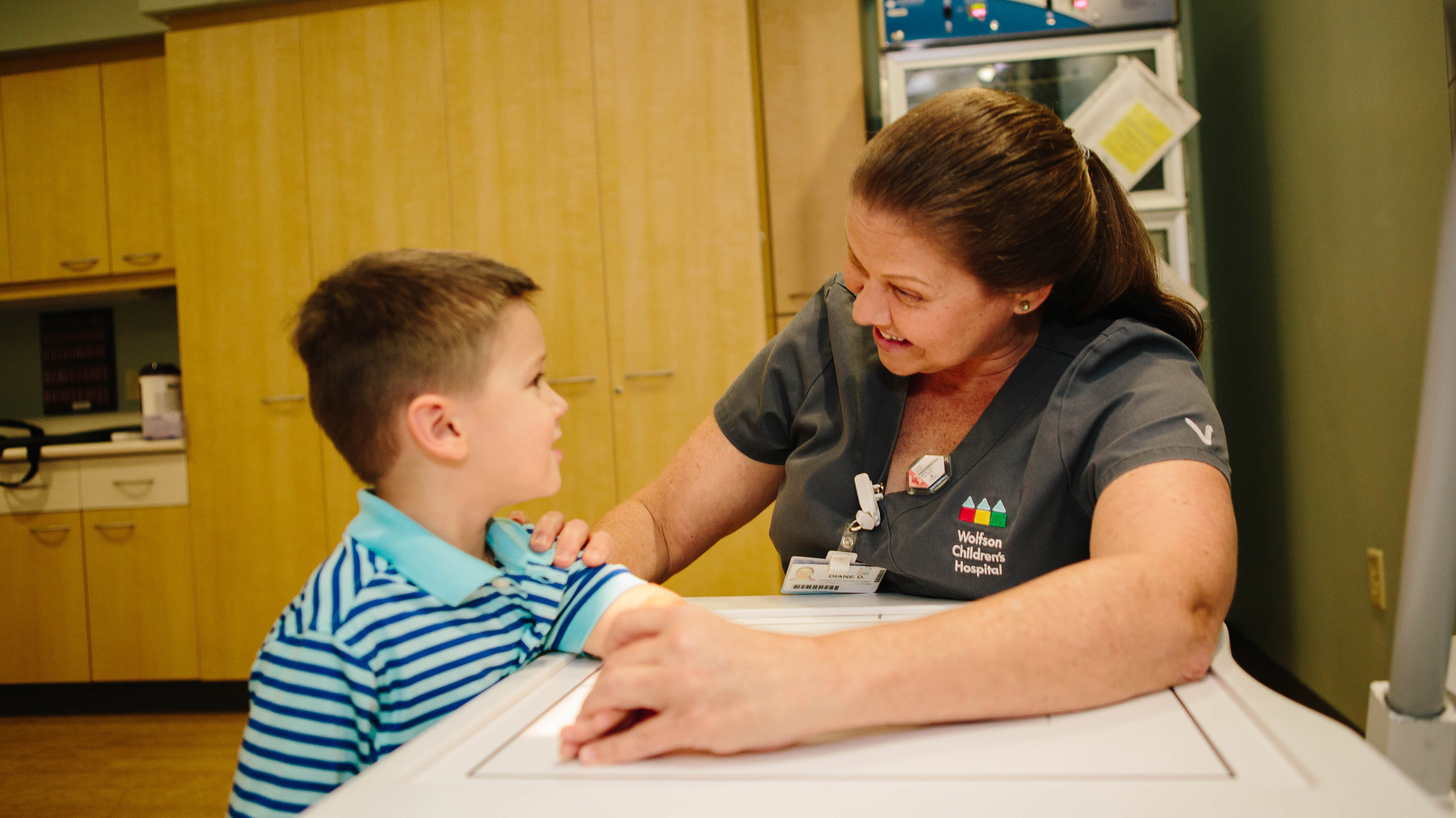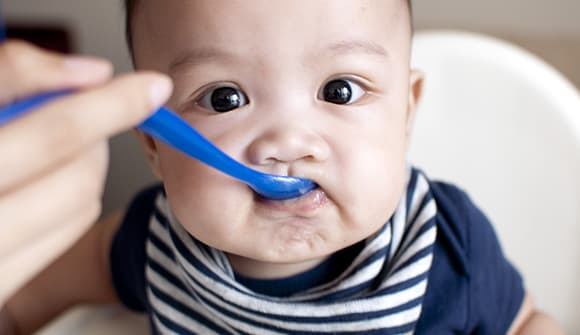Does your child need an X-ray?
An ‘image gently’ approach uses the lowest radiation possible to get the most accurate results.
Article Date:

Kids and accidents seem to go together, so the chances are pretty good that your child will need an X-ray at some time during childhood.
Some kids may even require a more advanced test like a CT (computed tomography) scan or an MRI. While these tests can be used to diagnose the most serious illnesses and injuries in children, they also are great tools for checking for the minor injuries kids are prone to, from broken bones to soft tissue injuries.
Wolfson Children’s Hospital follows an “Image Gently” pledge, which means pediatric specialists are committed to using the smallest dose of radiation possible to get the information they need to make decisions about treatment.
Most X-rays and CT scanners have the ability to adjust dosage by entering the patient’s weight. The imaging staff at Wolfson Children’s Hospital and those at the Wolfson Children’s Emergency Centers at Baptist Clay, Baptist North and Baptist Town Center, use special software that helps technologists get clearer pictures while using the lowest-possible radiation dose.
“We are very conscientious about the dosing required for some imaging scans because the effects of radiation are cumulative and last a lifetime,” said Suzanne Scott, a radiologic technologist with Wolfson Children's. “Children are particularly sensitive to radiation, so we provide the least amount of radiation needed for the most accurate results.
Some children require more than one X-ray or CT scan during the course of their injury or illness, Scott said, first to diagnose the problem and afterwards, to monitor healing and recovery.
A child with a ruptured appendix, for example, would typically have a CT scan to confirm the diagnosis and possibly more for follow-up to make sure any related infection or complication has been resolved.
For Elizabeth McGraw, MD, a pediatric radiologist with Nemours Children’s Health, Jacksonville, having this knowledge as a doctor was helpful to her when her child needed multiple CT scans.
When Dr. McGraw’s son Ben was a toddler, he had a benign growth in his middle ear that was diagnosed at Wolfson Children’s with a CT scan, and he needed to be monitored a few times after the growth was removed. As a pediatric radiologist and as a parent, knowing the dosing was adjusted for his size put Dr. McGraw more at ease.
“It’s reassuring as a parent to know that the CT scanner at Wolfson Children’s is calibrated with children in mind so it delivers the lowest dose of radiation possible while still yielding a high quality, diagnostic study,” she said. “When it comes to radiation dose, we realize that less is more, and I work diligently to produce an examination that is of diagnostic quality, yet delivers the lowest dose of radiation that is reasonably achievable.”
Added Scott: “Children aren’t little adults. They have unique medical needs. Having the right hardware and the right software isn’t where it ends – that’s where it begins.
Nemours Children's Health, Jacksonville, Pediatric Radiology



